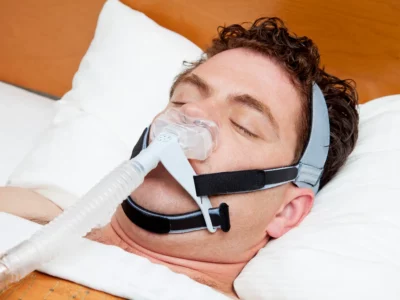
Cost of Sleep Apnea Test: Understanding the Expenses Involved
May 25 2024 Sleep Apnea Treatment sleep apnea test at home australia sleep apnea test melbourne sleep apnea test perth sleep testSleep apnea is a common sleep disorder that affects millions of people worldwide. It is characterized by pauses in breathing during sleep, often accompanied by loud snoring and excessive daytime sleepiness. If left untreated, sleep apnea can lead to various health complications, including high blood pressure, stroke, and heart disease.
Understanding Sleep Apnea
Before delving into the cost of sleep apnea tests, it is important to have a clear understanding of what sleep apnea is and its associated symptoms and risks.
Sleep apnea is a prevalent sleep disorder that affects millions of people worldwide. It is characterized by repeated pauses in breathing during sleep, leading to fragmented and poor-quality sleep. These interruptions in breathing can range from a few seconds to minutes and can occur multiple times throughout the night, disrupting the natural sleep cycle.
What is Sleep Apnea?
Sleep apnea can be categorized into three main types:
Obstructive Sleep Apnea (OSA): This is the most common form of sleep apnea and occurs when the throat muscles relax, causing the airway to become blocked.
Central Sleep Apnea: This type involves the central nervous system and occurs when the brain fails to signal the muscles that control breathing.
Complex Sleep Apnea Syndrome: Also known as treatment-emergent central sleep apnea, this type is a combination of both obstructive and central sleep apnea.
Symptoms and Risks of Sleep Apnea
Common symptoms of sleep apnea go beyond just snoring and can include:
Loud and chronic snoring
Gasping or choking during sleep
Daytime sleepiness and fatigue
Morning headaches
Difficulty concentrating and memory problems
Untreated sleep apnea can have serious health risks, as it puts a strain on the cardiovascular system and can lead to conditions such as hypertension, heart disease, stroke, and diabetes. Additionally, the excessive daytime sleepiness resulting from sleep apnea can increase the risk of workplace or driving accidents, posing a danger to both the individual and others.
The Need for Sleep Apnea Testing
Diagnosing sleep apnea is crucial for personalized treatment and management. Without proper testing, it is difficult to determine the severity of the condition and develop an effective treatment plan.
Sleep apnea is a common but serious sleep disorder that can have significant impacts on an individual’s overall health and quality of life. It is characterized by pauses in breathing or shallow breathing during sleep, leading to poor sleep quality and potential health risks. By undergoing sleep apnea testing, individuals can gain valuable insights into their condition and take proactive steps towards improving their sleep and well-being.
Importance of Diagnosis
A proper diagnosis is essential to understand the specific type and severity of sleep apnea a person may have. This information helps healthcare professionals determine the most suitable treatment options, which can range from lifestyle changes to continuous positive airway pressure (CPAP) therapy or even surgery.
Furthermore, diagnosing sleep apnea early can help prevent complications such as high blood pressure, heart disease, stroke, and diabetes. By addressing the underlying sleep issues, individuals can significantly reduce their risk of developing these serious health conditions.
Different Types of Sleep Apnea Tests
There are various sleep apnea tests available to diagnose the condition. These tests can be conducted in a sleep lab or at home, depending on the patient’s needs and circumstances.
In-lab polysomnography is a comprehensive sleep study that monitors various body functions during sleep, including brain activity, eye movements, heart rate, and breathing patterns. Home sleep apnea tests, on the other hand, are convenient and cost-effective options that allow individuals to undergo testing in the comfort of their own bed. These tests typically involve wearing a small device that records breathing patterns, oxygen levels, and heart rate while sleeping. Find more at https://www.sleepfoundation.org/physical-health/what-are-normal-oxygen-levels-during-sleep
Breaking Down the Cost of Sleep Apnea Test
When considering a sleep apnea test, it is important to understand the associated costs and factors that can influence the expenses involved.
In-Lab Sleep Study Costs
An in-lab sleep study, also known as a polysomnography (PSG), is a comprehensive sleep test conducted in a specialized sleep center or hospital. The cost of an in-lab sleep study can vary depending on factors such as geographical location and the specific services provided. On average, an in-lab sleep study can cost between $1,000 and $5,000.
Home Sleep Apnea Test Costs
A home sleep apnea test (HSAT) is a more convenient and cost-effective alternative to an in-lab sleep study. It involves the use of portable devices that measure various sleep parameters, such as airflow, oxygen levels, and heart rate. The cost of a home sleep apnea test typically ranges between $200 and $500, making it a more affordable option for many. Learn more click here
Factors Influencing the Cost of Sleep Apnea Test
Several factors can influence the overall cost of a sleep apnea test, including insurance coverage, out-of-pocket expenses, and geographical location.
Insurance Coverage and Out-of-Pocket Expenses
The extent of insurance coverage for sleep apnea tests can vary. Some insurance plans may cover a portion or the full cost of testing, while others may require a copayment or deductible. It is important to check with your insurance provider to understand the coverage and any potential out-of-pocket expenses.
Geographic Location and Cost Variations
The cost of sleep apnea tests can vary depending on the geographical location. Urban areas and regions with a higher cost of living may have higher testing costs compared to rural areas. It is advisable to research local sleep centers and compare prices to ensure you find the most affordable option available.
Ways to Manage Sleep Apnea Test Costs
While sleep apnea testing can be costly, there are several strategies to manage and mitigate the expenses involved.
Health Insurance and Medicare
Make sure to review your health insurance policy to understand what is covered under your plan. Medicare and some private insurance providers offer coverage for sleep apnea tests if medically necessary. Contact your insurance company to determine coverage options and any required authorization or documentation.
Payment Plans and Financial Assistance
If the cost of a sleep apnea test is a financial burden, consider discussing payment plans or financial assistance options with the sleep center or hospital. Some facilities offer flexible payment arrangements or can provide information about charitable or nonprofit organizations that assist with medical costs.
By understanding the expenses involved and exploring potential cost-saving measures, you can take proactive steps to manage the cost of sleep apnea testing. Remember, investing in proper diagnosis and treatment is essential to improving your overall health and quality of life.
Read More
Sleep Study Adelaide: Evaluating Sleep Patterns in South Australia
May 25 2024 Sleep Apnea Treatment sleep apnea test at home australia sleep apnea test melbourne sleep apnea test perth sleep testSleep plays a crucial role in our overall well-being. It is essential for our physical health and mental well-being. In South Australia, a team of experts at Sleep Study Adelaide is dedicated to evaluating sleep patterns and understanding their impact on individuals. Through their research, they hope to shed light on the science behind sleep patterns and contribute to the development of effective strategies for improving sleep quality.
Understanding the Importance of Sleep
Sleep is not just a period of rest; it is a fundamental biological process that is essential for our bodies to function optimally. It provides our bodies with an opportunity to repair cells, restore energy levels, and regulate various physiological processes.
Furthermore, sleep is a complex process that involves different stages, including rapid eye movement (REM) and non-REM sleep. Each stage plays a crucial role in different bodily functions, such as memory consolidation, hormone regulation, and tissue repair. REM sleep, in particular, is associated with vivid dreams and is believed to be important for emotional processing and learning. All these parameter are discuss in sleep study adelaide cost
The Role of Sleep in Physical Health
Adequate sleep is crucial for maintaining good physical health. Research has shown that poor sleep is associated with an increased risk of developing chronic conditions such as obesity, diabetes, and cardiovascular diseases. During sleep, our bodies release hormones that regulate appetite and metabolism, ensuring a healthy balance. Additionally, sleep is essential for a strong immune system, as it helps fight off infections and illnesses.
Moreover, sleep deprivation can have a significant impact on physical performance and recovery. Athletes, in particular, rely on quality sleep to support muscle repair, growth, and overall athletic performance. Lack of sleep can lead to decreased coordination, slower reaction times, and increased risk of injuries.
The Impact of Sleep on Mental Well-being
Sleep is closely linked to our mental well-being. It plays a vital role in cognitive processes such as memory consolidation, problem-solving, and creativity. Sufficient sleep is necessary for maintaining optimal mental focus and improving mood regulation. On the other hand, chronic sleep deprivation can lead to increased stress levels, mood disorders, and decreased cognitive performance.
Furthermore, sleep plays a crucial role in emotional regulation and mental health. Adequate sleep is essential for processing emotions, making sound decisions, and coping with daily stressors. Sleep disturbances, such as insomnia or sleep apnea, can exacerbate mental health conditions like anxiety and depression. Prioritizing good sleep hygiene and seeking treatment for sleep disorders are important steps in maintaining overall mental well-being.Find more about depression click here
The Science Behind Sleep Patterns
Our sleep patterns are governed by a complex system known as circadian rhythms. These rhythms are influenced by various factors, including exposure to natural light, lifestyle habits, and personal preferences.
Circadian Rhythms Explained
Circadian rhythms are our internal biological clocks that regulate our sleep-wake cycle. The primary driver of these rhythms is exposure to natural light. Light signals received by special cells in our eyes inform the brain about the time of day, helping to regulate our sleep-wake patterns. Disruptions to our natural circadian rhythms, such as shift work or jet lag, can lead to sleep disorders and a lack of quality sleep.
The Stages of Sleep
Sleep is not a uniform state but comprises different stages that repeat in cycles throughout the night. The two main types of sleep are rapid eye movement (REM) sleep and non-rapid eye movement (NREM) sleep.
NREM sleep consists of three stages: N1, N2, and N3. In N1, the transition from wakefulness to sleep occurs. In N2, brain activity slows down, and the body prepares for deep sleep. N3 is the stage of deep sleep, also known as slow-wave sleep, which is crucial for physical rejuvenation and restoration.
REM sleep, often associated with dreaming, occurs after the NREM stages. During REM sleep, brain activity becomes highly active, similar to when we are awake. This stage is essential for cognitive processes, emotional regulation, and memory consolidation. Find more about NERM at https://phosphorusplatform.eu/activities/conference/nerm
But did you know that sleep patterns can also be influenced by external factors? One such factor is the temperature of our sleeping environment. Research suggests that a cool room temperature, around 65 degrees Fahrenheit (18 degrees Celsius), can promote better sleep. When we sleep, our body temperature naturally drops, and a cooler room can help facilitate this process, allowing us to enter deep sleep more easily.
Another interesting aspect of sleep patterns is the impact of exercise. Regular physical activity has been shown to improve sleep quality and duration. Engaging in moderate-intensity aerobic exercise, such as brisk walking or cycling, can help regulate our circadian rhythms and promote a more restful sleep. However, it’s important to note that exercising too close to bedtime can have the opposite effect, as it may increase alertness and make it harder to fall asleep.
Understanding the science behind sleep patterns is crucial for maintaining optimal sleep health. By paying attention to our circadian rhythms, creating a sleep-friendly environment, and incorporating regular exercise into our routine, we can enhance the quality of our sleep and wake up feeling refreshed and rejuvenated.
The Process of a Sleep Study
For individuals who experience sleep-related difficulties, undergoing a sleep study can provide valuable insights into their sleep patterns and help diagnose potential sleep disorders.
During a sleep study, a team of trained professionals carefully monitors and analyzes various aspects of a person’s sleep, from brain activity to breathing patterns, to gain a comprehensive understanding of their sleep health.
Patients are often asked to arrive at the sleep laboratory in the evening to begin the preparation process. The sleep technologists will then attach sensors and electrodes to the patient’s scalp, face, chest, and legs to collect data throughout the night. While this may seem intrusive, the sensors are painless and designed to be as minimally disruptive as possible to ensure a natural sleep experience.
Preparing for a Sleep Study
Prior to a sleep study, participants are provided with specific instructions to ensure accurate results. It is essential to follow these instructions carefully, which may involve avoiding caffeine and alcohol, adhering to regular sleep schedules, and refraining from certain medications.
Additionally, patients are encouraged to bring items that will help them feel more comfortable during the study, such as their own pillow or pajamas. Creating a sleep environment that closely resembles their typical setting can lead to more accurate results.
What Happens During a Sleep Study
A sleep study typically takes place in a sleep laboratory or clinic, where individuals sleep in a controlled environment while their sleep patterns are monitored. Various devices, such as electrodes, are used to record brain activity, eye movements, muscle tone, heart rate, and breathing patterns. These recordings provide valuable data to assess sleep quality, identify disruptions, and diagnose sleep disorders.
Throughout the night, the sleep technologists will observe the patient from a separate room, monitoring the data in real-time to ensure the accuracy of the recordings. This constant supervision allows for any necessary adjustments to be made to guarantee the best possible outcome from the study.
Sleep Disorders and Their Prevalence in South Australia
Sleep disorders are prevalent in South Australia and can significantly impact individuals’ quality of life. Understanding these disorders is crucial for developing effective treatment strategies.
When it comes to sleep disorders, the impact goes beyond just feeling tired the next day. Chronic sleep issues can lead to a range of health problems, including increased risk of heart disease, diabetes, and mental health disorders. This underscores the importance of addressing sleep disorders promptly and effectively.
Common Sleep Disorders
There are numerous sleep disorders that can disrupt sleep patterns and impact overall well-being. Some common sleep disorders include insomnia, sleep apnea, narcolepsy, restless legs syndrome, and parasomnias such as sleepwalking or night terrors.
Insomnia, characterized by difficulty falling asleep or staying asleep, is one of the most prevalent sleep disorders worldwide. Sleep apnea, a condition where breathing repeatedly stops and starts during sleep, can have serious consequences if left untreated. Narcolepsy, on the other hand, is a neurological disorder that affects the brain’s ability to regulate sleep-wake cycles, leading to excessive daytime sleepiness.Learn more click here
Statistics on Sleep Disorders in South Australia
A recent study conducted by Sleep Study Adelaide revealed alarming statistics regarding sleep disorders in South Australia. It estimated that approximately 20% of the population suffers from chronic insomnia, while sleep apnea affects around 10% of individuals. These numbers highlight the need for further research and targeted interventions to address sleep-related issues in the region.
Furthermore, the impact of sleep disorders extends beyond the individual level to affect public health and safety. Sleep-deprived individuals are at a higher risk of accidents, both on the road and in the workplace, due to impaired cognitive function and decreased alertness. By addressing the prevalence of sleep disorders in South Australia, not only can we improve the well-being of individuals, but also create a safer environment for the community as a whole.
The Role of Sleep Study Adelaide in Sleep Research
Sleep Study Adelaide is committed to advancing sleep research and making meaningful contributions to the field. Understanding the complexities of sleep and its impact on overall health is at the core of their mission.
Established as a leading institution in sleep studies, Sleep Study Adelaide has a multidisciplinary team of experts dedicated to unraveling the mysteries of sleep. Their state-of-the-art facilities and cutting-edge technology enable them to conduct comprehensive research that delves deep into the science of sleep.
The Objectives of Sleep Study Adelaide
One of the primary objectives of Sleep Study Adelaide is to understand the underlying causes and consequences of sleep disorders. By conducting extensive research, their team aims to develop effective strategies for prevention, diagnosis, and treatment of sleep-related issues. Additionally, they strive to raise awareness about the importance of adequate sleep and promote healthy sleep habits across the community.
Moreover, Sleep Study Adelaide is actively involved in community outreach programs to educate the public about the significance of good sleep hygiene. By organizing workshops, seminars, and public events, they aim to empower individuals to take charge of their sleep health and make informed decisions for a better quality of life.
The Findings and Contributions of Sleep Study Adelaide
Over the years, Sleep Study Adelaide has made significant contributions to understanding sleep patterns and their impact on individuals. Their research findings have helped identify risk factors for sleep disorders and develop tailored interventions to improve sleep quality. Through collaboration with healthcare professionals, educators, and policymakers, Sleep Study Adelaide continues to drive positive changes in sleep health in South Australia.
Furthermore, the research conducted at Sleep Study Adelaide has not only enhanced our understanding of sleep but has also paved the way for innovative treatments and interventions. By partnering with pharmaceutical companies and medical device manufacturers, they are at the forefront of translating research findings into practical solutions that benefit individuals suffering from sleep disorders.
Conclusion
Sleep Study Adelaide plays a crucial role in evaluating sleep patterns in South Australia. Their research and findings contribute to understanding the science behind sleep, diagnosing sleep disorders, and developing effective strategies for treatment. By prioritizing sleep health, individuals can improve their overall quality of life and well-being. With ongoing efforts and collaboration, Sleep Study Adelaide aims to make a lasting impact and promote healthy sleep habits throughout the community.
Read More



